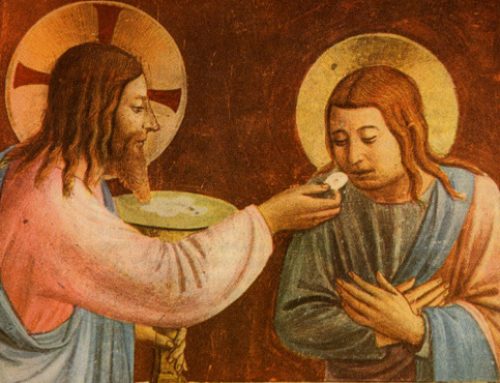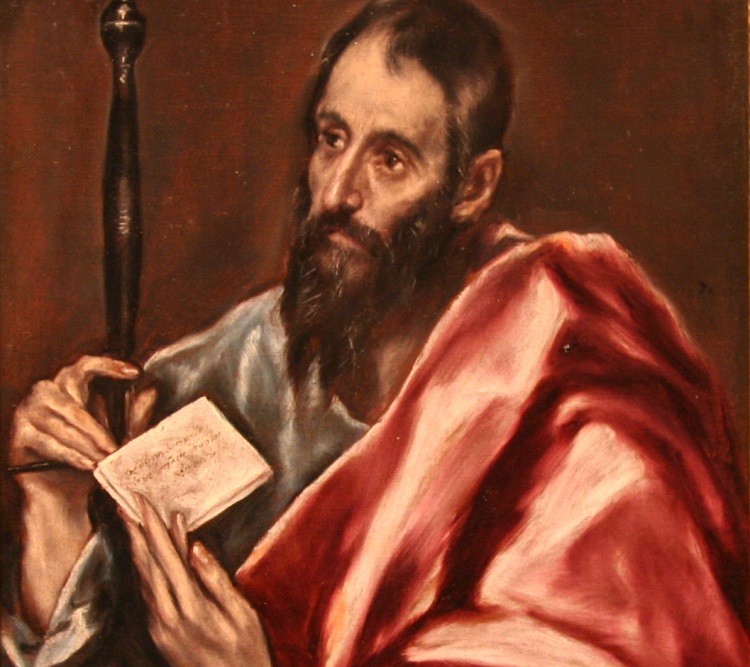Dear Brothers and Sisters,
With today’s Catechesis we return to the catechetical series we interrupted due to the Journey to Brazil and continue to speak of the ancient Church’s great personalities. They are teachers of the faith also for us today and witnesses of the perennial timeliness of the Christian faith.
Today, we speak of an African, Tertullian, who from the end of the second and beginning of the third century inaugurated Christian literature in the Latin language. He started the use of theology in Latin. His work brought decisive benefits which it would be unforgivable to underestimate. His influence covered different areas: linguistically, from the use of language and the recovery of classical culture, to singling out a common “Christian soul” in the world and in the formulation of new proposals of human coexistence.
We do not know the exact dates of his birth and death. Instead, we know that at Carthage, toward the end of the second century, he received a solid education in rhetoric, philosophy, history and law from his pagan parents and tutors. He then converted to Christianity, attracted, so it seems, by the example of the Christian martyrs.
He began to publish his most famous writings in 197. But a too individualistic search for the truth, together with his intransigent character – he was a rigorous man – gradually led him away from communion with the Church to belong to the Montanist sect. The originality of his thought, however, together with an incisive efficacy of language, assured him a high position in ancient Christian literature.
His apologetic writings are above all the most famous. They manifest two key intentions: to refute the grave accusations that pagans directed against the new religion; and, more propositional and missionary, to proclaim the Gospel message in dialogue with the culture of the time.
His most famous work, Apologeticus, denounces the unjust behaviour of political authorities toward the Church; explains and defends the teachings and customs of Christians; spells out differences between the new religion and the main philosophical currents of the time; and manifests the triumph of the Spirit that counters its persecutors with the blood, suffering and patience of the martyrs: “Refined as it is”, the African writes, “your cruelty serves no purpose. On the contrary, for our community, it is an invitation. We multiply every time one of us is mowed down. The blood of Christians is effective seed” (semen est sanguis christianorum!, Apologeticus, 50: 13).
Martyrdom, suffering for the truth, is in the end victorious and more efficient than the cruelty and violence of totalitarian regimes.
But Tertullian, as every good apologist, at the same time sensed the need to communicate the essence of Christianity positively. This is why he adopted the speculative method to illustrate the rational foundations of Christian dogma. He developed it in a systematic way, beginning with the description of “the God of the Christians”: “He whom we adore”, the Apologist wrote, “is the one, only God”. And he continued, using antitheses and paradoxes characteristic of his language: “He is invisible, even if you see him, difficult to grasp, even if he is present through grace; inconceivable even if the human senses can perceive him, therefore, he is true and great!” (cf. ibid., 17: 1-2).
Furthermore, Tertullian takes an enormous step in the development of Trinitarian dogma. He has given us an appropriate way to express this great mystery in Latin by introducing the terms “one substance” and “three Persons”. In a similar way, he also greatly developed the correct language to express the mystery of Christ, Son of God and true Man.
The Holy Spirit is also considered in the African’s writings, demonstrating his personal and divine character: “We believe that, according to his promise, Jesus Christ sent, by means of his Father, the Holy Spirit, the Paraclete, the sanctifier of the faith of all those who believe in the Father, Son and Holy Spirit” (ibid., 2: 1).
Again, there are in Tertullian’s writings numerous texts on the Church, whom he always recognizes as “mother”. Even after his acceptance of Montanism, he did not forget that the Church is the Mother of our faith and Christian life.
He even considers the moral conduct of Christians and the future life. His writings are important as they also show the practical trends in the Christian community regarding Mary Most Holy, the Sacraments of the Eucharist, Matrimony and Reconciliation, Petrine primacy, prayer…. In a special way, in those times of persecution when Christians seemed to be a lost minority, the Apologist exhorted them to hope, which in his treatises is not simply a virtue in itself, but something that involves every aspect of Christian existence.
We have the hope that the future is ours because the future is God’s. Therefore, the Lord’s Resurrection is presented as the foundation of our future resurrection and represents the main object of the Christian’s confidence: “And so the flesh shall rise again”, the African categorically affirms, “wholly in every man, in its own identity, in its absolute integrity. Wherever it may be, it is in safe keeping in God’s presence, through that most faithful Mediator between God and man, Jesus Christ, who shall reconcile both God to man, and man to God” (Concerning the Resurrection of the Flesh, 63: 1).
From the human viewpoint one can undoubtedly speak of Tertullian’s own drama. With the passing of years he became increasingly exigent in regard to the Christians. He demanded heroic behaviour from them in every circumstance, above all under persecution.
Rigid in his positions, he did not withhold blunt criticism and he inevitably ended by finding himself isolated.
Besides, many questions still remain open today, not only on Tertullian’s theological and philosophical thought, but also on his attitude in regard to political institutions and pagan society.
This great moral and intellectual personality, this man who made such a great contribution to Christian thought, makes me think deeply. One sees that in the end he lacked the simplicity, the humility to integrate himself with the Church, to accept his weaknesses, to be forbearing with others and himself.
When one only sees his thought in all its greatness, in the end, it is precisely this greatness that is lost. The essential characteristic of a great theologian is the humility to remain with the Church, to accept his own and others’ weaknesses, because actually only God is all holy. We, instead, always need forgiveness.
Finally, the African remains an interesting witness of the early times of the Church, when Christians found they were the authentic protagonists of a “new culture” in the critical confrontation between the classical heritage and the Gospel message.
In his famous affirmation according to which our soul “is naturally Christian” (Apologeticus 17: 6), Tertullian evokes the perennial continuity between authentic human values and Christian ones. Also in his other reflection borrowed directly from the Gospel, according to which “the Christian cannot hate, not even his enemies” (cf. Apologeticus 37), is found the unavoidable moral resolve, the choice of faith which proposes “non-violence” as the rule of life. Indeed, no one can escape the dramatic aptness of this teaching, also in light of the heated debate on religions.
In summary, the treatises of this African trace many themes that we are still called to face today. They involve us in a fruitful interior examination to which I exhort all the faithful, so that they may know how to express in an always more convincing manner the Rule of faith, which – again, referring to Tertullian – “prescribes the belief that there is only one God and that he is none other than the Creator of the world, who produced all things out of nothing through his own Word, generated before all things” (cf. Concerning the Prescription of Heretics, 13: 1).




Leave A Comment
You must be logged in to post a comment.